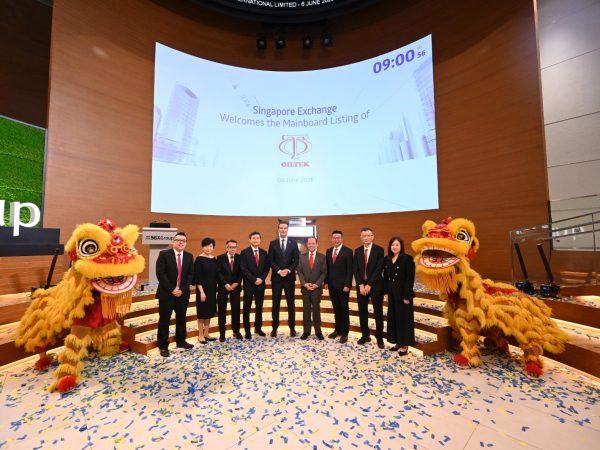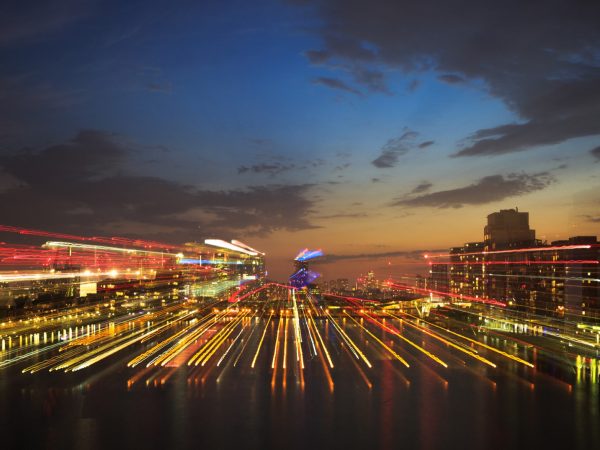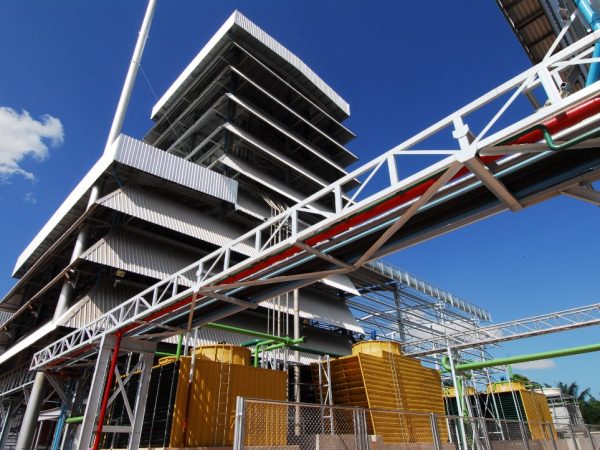To accelerate maritime decarbonisation, maritime electrification technology start-up, Pyxis, and fuel cell components manufacturer, Sydrogen Energy, have entered into a non-binding Memorandum of Understanding (MOU) to jointly execute a Proof of Concept (PoC) study in the deployment of hydrogen fuel cell solutions. These fuel cells are electrochemical cells that convert the chemical energy of a fuel, such as hydrogen, into electricity.
Expected to commence in 4Q 2023 (after the definitive agreements have been negotiated and entered into) and continue till early 2025, this study will further explore hydrogen fuel cells for broader maritime applications. Hydrogen has gained recognition as an important energy carrier in its role to contribute toward decarbonisation globally. The Ministry of Trade and Industry (MTI) announced Singapore’s National Hydrogen Strategy on 25 October 2022 , as part of the plan to accelerate the transition to net zero emissions with hydrogen as a key potential decarbonisation pathway for Singapore.
In the recent Committee of Supply debate on 03 March 2023, Parliament outlined initiatives to require harbour craft in the maritime sector to achieve net-zero emissions by 2050 where the Maritime and Port Authority (MPA) will partner with industry, financial institutions, harbour craft operators and manufacturers to help lower the cost of adoption and mobilise support for early adopters. A call for proposals for the design and development, demand aggregation and green financing for new electric harbour craft (e-HC) was announced on 10 July 2023, beginning with an Expression of Interest (EOI) to design and develop electric harbour craft in Singapore.
Pleasure craft sector and domestic tugboats will subsequently be required to achieve net-zero emissions by 2050 with MPA performing a study of the timelines for the transition and will provide an update in 2024. This follows the Maritime Singapore Decarbonisation Blueprint in 2022, where all harbour craft will operate on low-carbon energy solutions by 2030, to reduce 15% in emissions from 2021 levels and up to 50% decrease in emissions (compared to 2030) by 2050. Ultimately, the MPA aims for its harbour craft fleet to transition to full-electric propulsion and net zero fuels by 2050.
In view of these developments, Pyxis partners Sydrogen to accelerate decarbonisation of harbour craft by harnessing green technology (hydrogen) for the rapid electrification and power generation requirements to decarbonise the maritime industry’s energy mix. Under the MOU, Pyxis and Sydrogen will work collaboratively to develop hydrogen fuel cell solutions for the maritime harbor craft ecosystem from shore to sea, with the objective to achieve Singapore’s electrification goals and pave the way to net zero emissions.
Leveraging electrification, Pyxis is set to spearhead maritime decarbonisation and achieve signficant advancements in coastal vessel performance and digitalisation. Pyxis’ mission is to propel the maritime industry towards a greener, more sustainable future, while helping vessel owners to operate more efficiently and cost-effectively.
Tommy Phun, Founder and Chief Executive Officer of Pyxis, said, “The sustainability movement has sparked a transformative disruption in the maritime industry. Decarbonisation is no longer a bonus, but a necessity. Acknowledging the significant challenges that coastal vessel owners and operators face in the transition towards an electric fleet, our goal is to ease and boost adoption by achieving mass commercialisation of electrification technologies. Our strategic partnership with Sydrogen Energy brings together two homegrown companies to lead the charge in positioning Singapore at the forefront of maritime decarbonisation in the region.”
David DeVries, Chief Executive Officer of Sydrogen Energy, said: “Zero emission power generation plays an important role in decarbonising our energy use. The proof of concept combines Sydrogen’s Deep Tech capabilities with a key maritime ecosystem player to develop home-grown solutions to future-proof Singapore’s maritime energy mix. We are glad to work with future-centric partners such as Pyxis in this endeavour toward building out local innovations to meet our near and long term decarbonisation targets.”
–
About Pyxis
Pyxis Maritime Pte Ltd is a maritime electrification technology start-up with a mission to create a sustainable, greener maritime future. By easing mass commercialisation and adoption of electric coastal vessels, Pyxis accelerates maritime decarbonisation while elevating vessel performance and management. Led by maritime veterans and supported by leading coastal vessel owners and government agencies, Pyxis is positioned to drive transformation in key port segments of Singapore and sister-ports in the region.
About Sydrogen
Established in 2021, Sydrogen has been providing Deep Tech solutions that enhance the performance of hydrogen fuel cells to automotive customers in China, in addition to coating services to other players in the market. This PoC will provide additional opportunity to showcase Sydrogen’s capabilities in fuel cell systems that help accelerate the maritime decarbonisation efforts.
Sydrogen Energy Pte. Ltd. is a Joint Venture between Nanofilm Technologies International Limited, a leading Deep Tech nanotechnology materials solution provider in Asia, and a wholly-owned subsidiary of Temasek. Sydrogen develops and manufactures fuel cell components which are critical in overcoming existing limitations in the use of hydrogen as an energy source. Sydrogen leverages the coating technologies and manufacturing capabilities of Nanofilm Technologies International. Building off a strong foundation of both JV partners, Sydrogen brings to market new innovative green energy systems that places Sydrogen in good stead to support the energy transition.



